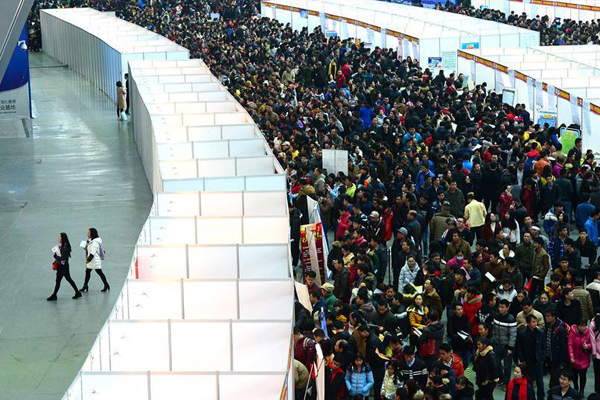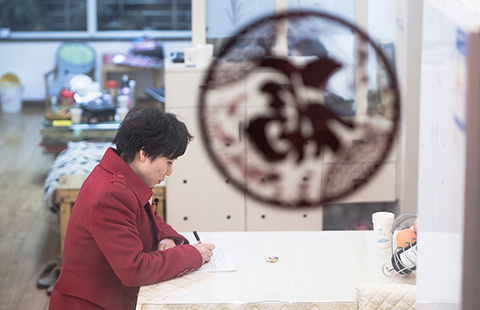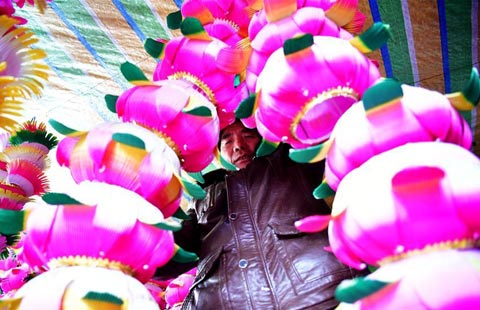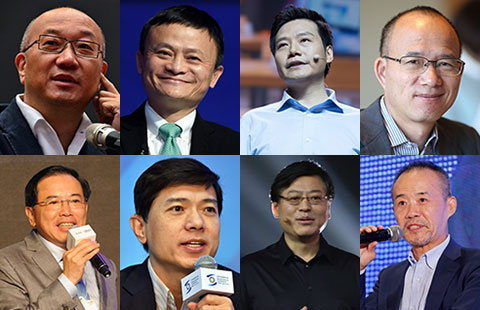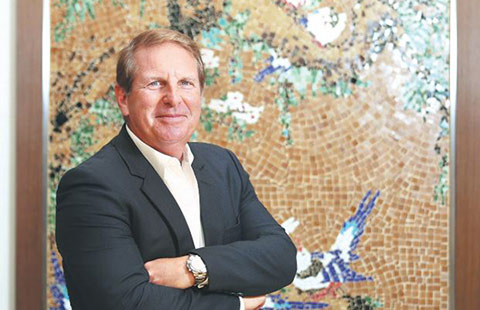Sales slump sees inventories piling up
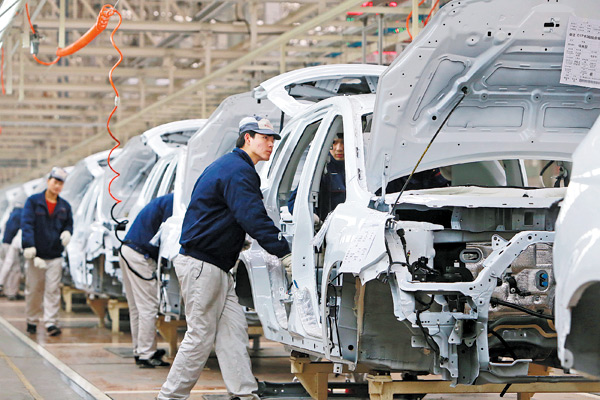 |
|
Workers assemble car bodies at a Great Wall Motor plant in Tianjin on Feb 7. Despite a sales dip in January, automakers are optimistic about sales this year. [Photo provided to China Daily] |
Dealers are sitting on stock, but carmakers' whole year projections remain optimistic, Li Fusheng reports.
Industry analysts have raised the alarm over Chinese car dealers' inventory levels, which hit a 14-month high in January.
The inventory index stood at 61.5 percent last month, 18.6 percentage points higher than in December, according to the China Automobile Dealers Association.
The monthly index is based on a survey of more than 1,000 authorized stores in China that sell 55 brands of vehicles, both Chinese and imported.
A reasonable inventory level should be no higher 50 percent, according to the association. The index has hovered around the 50 percent mark since the second half of 2016.
Lang Xuehong, the association's deputy secretary-general, said the high January index was the result of December's car purchase rush before the expiration of the 50 percent purchase tax discount, as well as the weeklong Spring Festival holiday, during which people seldom shop for new cars.
Lang's words were echoed by Peter Fleet, Ford Asia Pacific's vice-president of marketing, sales and service.
He said in a news release that Ford and its joint ventures in China sold 88,000 vehicles in January, down 32 percent from the same period last year, because of these two factors.
Ford was not alone. Statistics from the China Passenger Car Association show that 2.07 million passenger cars were sold nationwide in January, a 9.3 percent fall year-on-year and a 23.5 percent slump from December.
Things could get even worse in February, according to the dealers association, with 67.8 percent of respondents in its survey believing market demand will shrink further.
The figure stood at 38.2 percent in January. However, Xiao Zhengsan, secretary-general of the association said that sales performance figures from one or two months are insufficient to predict a whole year's trend.
Carmakers are optimistic about the year as a whole, as shown by their recently unveiled sales targets. FAW-Volkswagen Automobile has set itself the goal of shifting 1.4 million cars, excluding Audi sales, a 6.8 percent increase from its sales of 1.31 million in 2016.
Beijing Hyundai Motor hopes to sell 1.25 million cars in 2017, up 9.6 percent year-on-year, as it plans to launch 10 new models this year.
Dongfeng Honda Automobile, which sold 595,000 cars in 2016, expects to deliver 650,000 vehicles this year, representing 9.12 percent growth.
Chinese brands are even more ambitious. Great Wall Motor set a sales target of 1.25 million cars, up 16.8 percent year-on-year, similar to its growth last year, because of the continuous popularity of SUVs in the Chinese market.
Its Haval H6 SUV made history in December, with 80,495 units sold in the month alone, meaning one was sold every 33 seconds. More than 580,000 H6 vehicles were sold in the year.
Geely expects to sell 1 million cars this year in a 30 percent year-on-year surge, with five models due to hit the market, including three SUVs.
The automaker saw 50 percent year-on-year growth in 2016.
The Zhejiang-based automaker secured a good start to the year, selling more than 100,000 cars in January, soaring 71 percent from the same period last year.
Analysts believe that Chinese automakers' more bullish growth estimates are based on their performance in 2016 as well as the models they have planned for this year.
Chinese carmakers sold a total of 10.5 million passenger cars last year, up 20.5 percent year-on-year, higher than the industry average of 14.9 percent, according to the China Association of Automobile Manufacturers.
Statistics show that Chinese automakers' market share rose to 43.2 percent by the end of 2016, up from 38.4 percent in 2014.
However, there is still a long way to go.
Changan Automobile, Geely and Great Wall made it onto the list of 10 best-sellers in January, but their sales remain much smaller than those of international brands such as Volkswagen and GM.




